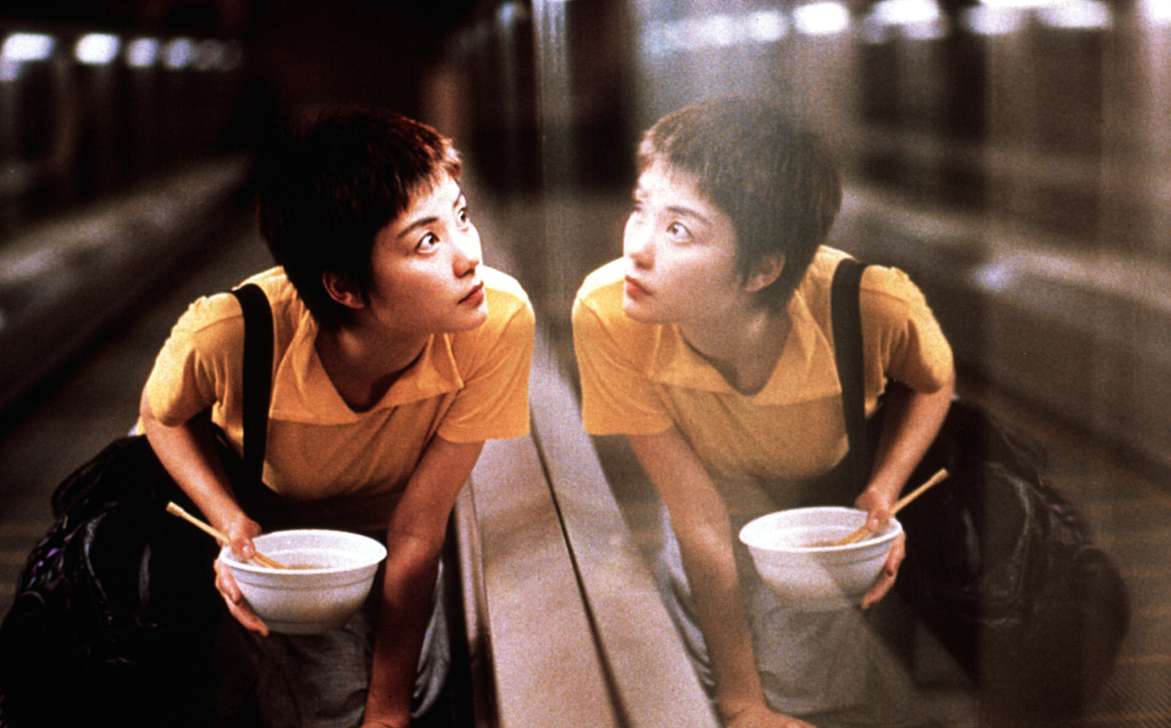“People make films to provide answers. The way I make films is more like posing questions.”
– Wong Kar-Wai
The 62-year-old Hong Kong filmmaker’s name has been the talk of the town ahead of the March 2021 release of The World of Wong Kar-Wai, the seven disc box set with 4,000 restorations of his films curated by The Criterion Collective. However, even otherwise, scenes and frames from his popular films consistently flock innumerable cinema and art pages on Instagram. Perhaps it is safe to say that lovers of cinema love Wong Kar-Wai’s films. But even if you’re not what they call a cinephile, and just someone who likes watching romantic dramas, you might find your new favourites somewhere in Wong Kar-Wai’s filmography.
Wong Kar-Wai’s films are like making love to loneliness, like buying time to stare into nothingness in a place where time isn’t too affordable, usually at the cost of heartbreak or indefinite longing. And if you expected me to compare his style with another filmmaker, I cannot. In fact, Wong Kar-Wai’s films were a break from the action films of the era, exploring human emotions in a social setting unique to Hong Kong. However, his style seems to have its roots in the style of the French New Wave where we can also see a lot of romancing with the city, as well as his much talked about styles of editing – be it making his actors move slowly and filming at a speed lower than 24fps (while blurring everyone else out), or the jump cuts, and freeze frames; all this drives the narrative of the his stories.
Also read: ‘Perfect Blue’: Relevance of a 1997 Anime Film in Today’s ‘Real’ World
These sound, camera and editing techniques convey so subtly what his characters are going through. But his characters, often regular people we may never even turn around to look at twice, who may seem so beaten up in life and unlucky in love, are what makes his films, his films. Wong Kar-Wai is known to work closely with his actors – Tony Leung, Faye Wong and Maggie Cheung being the ones he worked repeatedly with; mostly without even giving them a finished script. These actors have often found the final cut of the films to look nothing like the original idea. But that is also a classic Wong Kar-Wai thing to do, to not be obsessed with an initial idea and let the story take charge.
In the Mood for Love (2000) is inarguably the most widely popular Wong Kar-Wai film, and Happy Together (1997) even won him the Palme d’Or at the 1997 Cannes Film Festival. However, Chungking Express (1994) was the film that I, and seven people I have introduced the film to, has been something we could always come back to and watch multiple times. Maybe it is the charms of the mid-nineties, the payphones and the McDonaldisation of the world at its glory – all facilitating a half melancholic-half comic, adorable romance. It is a film where a heartbroken policeman number 223 has a brief encounter with a blonde female assassin.
Another heartbroken policeman number 663 has his life changed over a gradual relationship he has with a girl who dreams of a better life, wants to leave the city of Hong Kong and yet breaks into his house to enter his life. The characters in the film feel the life of their love losing its breath, again and again, telling themselves lies that are told only in love, and yet they found some memory to keep coming back for. The romance of Chungking Express is the romance of our everyday lives. It is a romance that happens while we’re on our jobs, or having to go back to our jobs, where someone brings us some joy while we’re dreaming of a better place to be one day.
Wong Kar-Wai made Chungking Express almost accidentally, while he had the production of Ashes of Time going on for two years. He shot it in six weeks in a neighbourhood he grew up in and called the film “a love letter to Hong Kong”.
And now, he has reportedly finished writing another script during the pandemic and even had it approved by the China Film Administration in April, 2020. According to reports from Variety last year, he is naming it Chungking Express 2020, as it continues to remain a mystery, it might just become the romance of the decade and give us something new that will always remain young. But then again, it might just be something totally different from what everyone expects.
Shristi Bhattacharjee is a Sociology graduate who likes films and visual culture to the point that it has become hard for her to like much else. You can find her on Instagram @cheeseburstlife.

